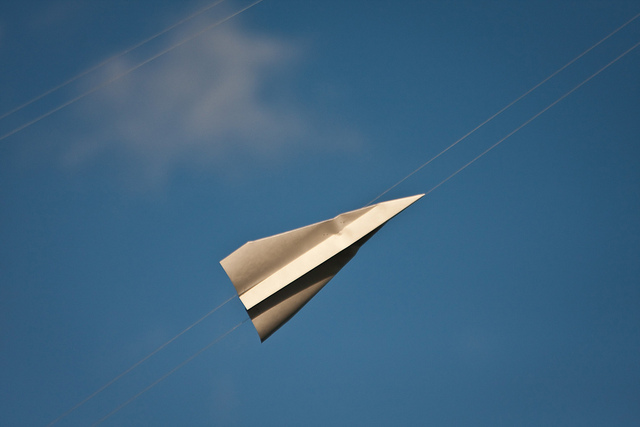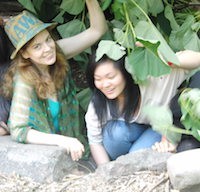I was in Manhattan on September 11th, 2001.
I was in Paris at my husband’s family’s home last January when the terrorists hit Charlie Hebdo and the Jewish grocery store.
My heart is burning with love for Paris right now. But I’m also sensitive to anger over the unfairness of the outpouring of empathy for Paris when attacks in other parts of the world don’t receive the same attention.
Let’s be careful not to tear each other down with the politics of empathy or to create divisions. Now is a call to more love, not less.
I’m grateful to people pointing out the injustice in the news coverage. I didn’t find out about the story of the suicide bombing in Baghdad or in Beirut until it was reported and compared to Paris. When written respectfully, this kind of critique can also be a form of love.
One thing is clear: Now is the time for love in action. As Thich Nat Han writes:
If we work for peace out of anger, we will never succeed. Peace is not an end. It can never come about through non-peaceful means.
When an event like the Paris attacks happens, there are two emotions that explode outward: fear and love.
Deep, passionate love was present in New York City after 9/11. And it was present to such an extent that it felt revolutionary. Love was present in the way we smiled at each other as we made our way to the subway in the days that followed, the way a stranger sat with me and gave me kleenex when I broke down weeping in the street, in the way I comforted someone else who collapsed crying, in the way we saluted each other with our “I heart NYC” coffee cups as the city slowly came back to life.
We were we.
And this same feeling was awash in the streets of Paris last January. There were more protective feelings expressed regarding the Muslim community than there was ignorance. I observed a man’s sticker that read, “We are All Charlie and Ali,” when I was coming back from a gathering of solidarity in the Parisian streets. His eyes were full of love—overflowing with it. I knew the state he was in.
But anger is there too.
Last night, my husband and I prayed for the safety of his mom in Paris and celebrated her safe passage home. This morning my husband woke up angry at the way the world outside of Europe and the U.S. is forgotten again and again, at the gross injustices perpetrated by Western powers that are one of the root causes that lead to violence, at one more reason for people to dump their hatred onto people from the Middle East, and then he went and meditated. “I remembered that all the real solutions come from the heart,” he said later.
My family—my husband’s family—who lives in Paris are Iranian French. They’re not Muslim; they’re typical Parisian atheists with no fondness for religious oppression of any kind, but some of their friends are Muslim. They’re very conscious of the way that the Middle Eastern world is portrayed in Western media. “But wherever the terrorism happens in the world,” they said recently, “it’s always the young people, the innocent, who suffer.”
Last January, on the French National Day of Mourning, I sat with my husband’s family in front of the television, watching the memorial for Charlie Hebdo, laughing when an Iranian comedian came on, explaining that there absolutely is an incredible sense of humor in the Islamic world, talking about the timeless, universal comedy of Nasreddin. When you live in a war-ravaged part of the world, you learn to laugh in the face of anything, because what else can you do?
After 9/11, I had a journalist friend from Pakistan (also, incidentally, an atheist) who started speaking in Urdu to a Deli clerk late one night in Brooklyn about a week after the attacks. After leaving the store he was jumped by some men, becoming the first official hate crime victim in the city after 9/11. It took him years to get his front tooth fixed. It was a symbol of the emotional toll the attack had taken.
Now, as was the case then, is a time is full of love, anger and fear.
For those of us with hearts broken open, let’s feel that wave of love and shared humanity rippling out and magnify that.
Let’s look at everyone we meet in the street with the passionate gaze we give to our loved ones. We can extend empathy towards Paris out to Bagdad, to Japan, to Lebanon and beyond. We can recognize the enormous capacity of the human heart to love.
Love in action is fierce. As Thich Nat Han writes:
We who have touched war have a duty to bring the truth about war to those who have not had a direct experience of it. We are the light at the tip of the candle. It is really hot, but it has the power of shining and illuminating. If we practice mindfulness, we will know how to look deeply into the nature of war and, with our insight, wake people up so that together we can avoid repeating the same horrors again and again.
As more of us experience these kinds of horrors, we can become that light. After waking up from nightmares in my small Manhattan apartment after 9/11, I felt the presence of my ancestors standing with me, the ones who’d been in London in World War II, including my great grandmother who died in the bombing. It felt like they were letting me know that love wins, that it was right and good to believe this. It is important to feel joy, to feel love, to wrap your arms around yourself and know that love is present even when it looks like all is lost.
Perhaps we can yet all mourn our lost loved ones together, our lost sense of safety together and we can dance and laugh together in the face of everything, and create more peace than we’ve ever known.
~
Relephant:
Paris & Its Loving-kindness.
~
Author: Kate Temple-West
Editor: Caitlin Oriel
Image: Garry Knight/Flickr











Read 3 comments and reply